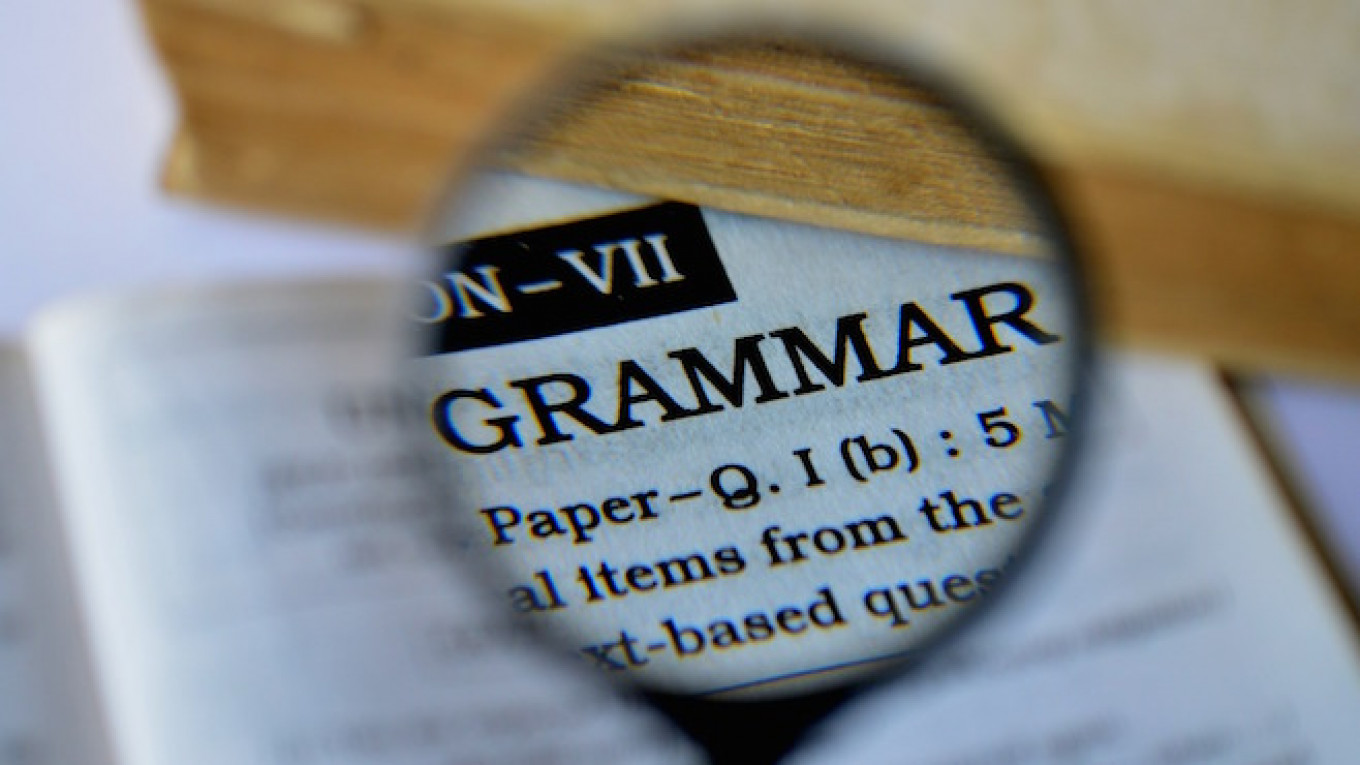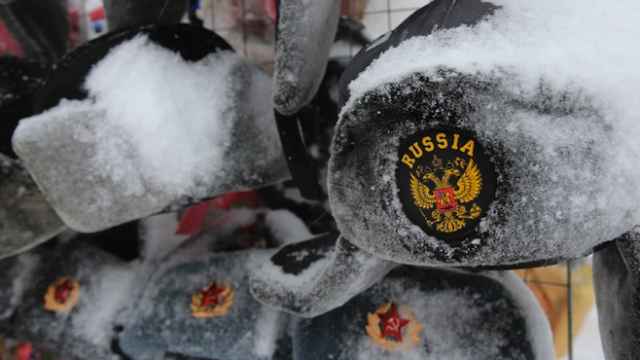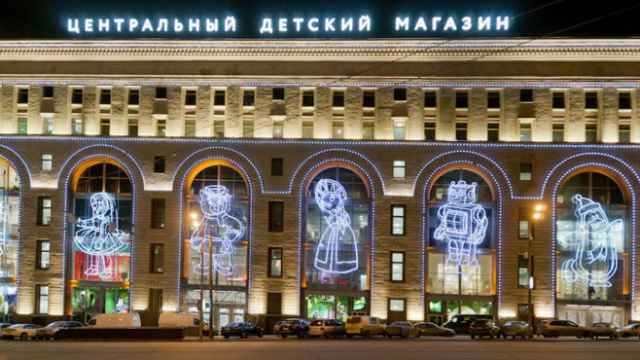Russia's drive to prosecute anyone associated with anything resembling Nazi symbols has zeroed in on a new target: proponents of immaculately literate writing who may have ties to "grammar Nazis."
Those "Nazis" — who consider it their responsibility to correct misspellings and grammatical errors — have prompted at least two official investigations in Russia on suspicion of promoting Nazi propaganda.
In the latest case, prosecutors in southern Russia on Wednesday summoned for questioning Alexei Pavlovsky, the head of Bonus Media, which supports the local branch of the popular Total Dictation educational project. The project tests how accurately people can transcribe a text read orally.
"They asked me first about the dictation, about my other civil initiatives, and then politely inquired about what I knew about grammar Nazis, and whether they were financing my activities," Pavlovsky wrote on his Facebook page.
The language purists dubbed "grammar Nazis" do not appear to be a formal group and have not been known to engage in organizational financing of anybody's activities.
A letter from a district prosecutor's office in the city of Rostov-on-Don also demanded to see Bonus Media's "partnership agreement" with the Total Dictation foundation, according to a photo of the document Pavlovsky posted online.
Total Dictation, which is held every year in April, is known for its exceptionally complicated dictation quizzes, based on texts designed by the nation's leading linguists specifically to highlight the most labyrinthine of the spelling and punctuation rules of the Russian language. Only a small number of people have been known to complete the test without a single error. This year approximately 100,000 people in 52 countries participated in the Total Dictation, according to the organizers.
Pavlovsky, whose company organized a Total Dictation test in Rostov-on-Don, said that prosecutors also showed him images of various logos that self-proclaimed adherents of the informal "grammar Nazi" movement have designed. Some the logos include the letter "G" styled to resemble a swastika, and the slogan "Grammatik Macht Frei" — an apparent spin on the motto at the gates of the Auschwitz concentration camp that reads "Arbeit macht frei," meaning "Work makes (you) free."
Prosecutors "inquired about my attitude to those images," Pavlovsky said. "They also inquired how I felt about people who make [spelling or grammatical] errors, and whether I had any desire to eliminate them."
A "grammar Nazi" logo has already earned a popular blogger in Siberia a conviction for promoting Nazi propaganda in another case this year.
Maria Burdukovskaya was charged with "promoting Nazi ideology" this spring, after she posted a "grammar Nazi" picture on her social network page — a post she said was aimed to "support the correct use and purity of the Russian language," according to the Baikal-Daily news site.
A court in Ulan-Ude found her guilty of Nazi propaganda and ordered her pay a fine of 1,000 rubles ($19.50), the Infpol.ru news site reported.
A Message from The Moscow Times:
Dear readers,
We are facing unprecedented challenges. Russia's Prosecutor General's Office has designated The Moscow Times as an "undesirable" organization, criminalizing our work and putting our staff at risk of prosecution. This follows our earlier unjust labeling as a "foreign agent."
These actions are direct attempts to silence independent journalism in Russia. The authorities claim our work "discredits the decisions of the Russian leadership." We see things differently: we strive to provide accurate, unbiased reporting on Russia.
We, the journalists of The Moscow Times, refuse to be silenced. But to continue our work, we need your help.
Your support, no matter how small, makes a world of difference. If you can, please support us monthly starting from just $2. It's quick to set up, and every contribution makes a significant impact.
By supporting The Moscow Times, you're defending open, independent journalism in the face of repression. Thank you for standing with us.
Remind me later.






